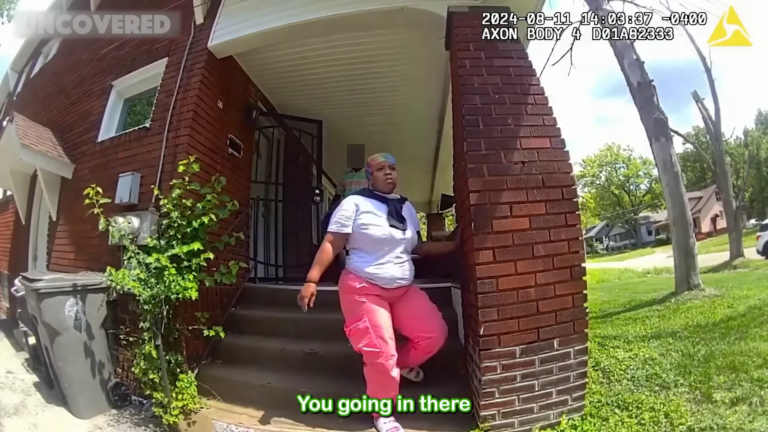
Dealing with squatters can be a daunting and complex issue for property owners, especially when accompanied by unexpected challenges like multiple pets. This blog delves into a real-life case of evicting a squatter and 15 dogs from a mobile home, highlighting the legal and emotional aspects of the situation.
Table of Contents
- Introduction to the Case
- The Complications of Inherited Properties
- The Role of Probate in Property Ownership
- Understanding Squatter Rights
- The Eviction Process Explained
- Preparing the Property for Sale
- Emotional Impact on Homeowners
- Legal Resources for Eviction
- Conclusion: Finding Solutions
- FAQs about Squatters and Evictions
Introduction to the Case
The complexity of squatter situations often escalates beyond mere property disputes. In this case, we encounter a mobile home occupied by a squatter alongside 15 dogs, following the death of the property owner. The heirs faced significant challenges as they navigated through the probate process, delaying their ability to reclaim their inherited property.

Photo by Patrick Perkins on Unsplash
The Emotional Toll on Property Owners
For the heirs, the emotional weight of losing a loved one is compounded by the stress of dealing with a squatter. The presence of multiple dogs only adds to the chaos. This situation creates a sense of urgency; the longer the squatter remains, the more difficult it becomes to manage the property and the emotional fallout.

Photo by Étienne Beauregard-Riverin on Unsplash
The Complications of Inherited Properties
Inherited properties can become a double-edged sword. While they may hold sentimental value, they often come with legal and financial burdens. In this case, the heirs were left with a property that was not only occupied but also in disarray due to the squatter’s presence.

Photo by Tierra Mallorca on Unsplash
Understanding Legal Responsibilities
Heirs must understand their legal responsibilities when inheriting property. Ignorance of the law can lead to prolonged disputes and financial losses. In this instance, the heirs learned that they would need to act swiftly to reclaim their property and mitigate further complications.

Photo by Mikhail Pavstyuk on Unsplash
The Role of Probate in Property Ownership
Probate is a legal process that validates a deceased person’s will and ensures their assets are distributed according to their wishes. Unfortunately, this process can be lengthy, especially when there are disputes among heirs or complications with the estate.
Delays in the Probate Process
In this case, the heirs faced significant delays in the probate process. This allowed the squatter to establish a claim over the property, complicating the eventual eviction. Understanding probate timelines is crucial for heirs to avoid similar situations.
Understanding Squatter Rights
Squatter rights, often referred to as adverse possession, can create significant challenges for property owners. Squatters may claim legal rights to occupy a property if they meet certain conditions, including continuous and open use of the property for a specified period.

Photo by Nick Fewings on Unsplash
Legal Implications of Squatting
It’s essential for property owners to grasp the legal implications of squatting. Ignoring a squatter can lead to lengthy legal battles and potential loss of property. In this case, the squatter’s claim complicated the situation, making it imperative for the heirs to act decisively.

Photo by Tingey Injury Law Firm on Unsplash
The Eviction Process Explained
The eviction process is a legal mechanism designed to remove individuals from a property. It typically begins with a formal notice to the squatter, followed by court proceedings if the squatter refuses to leave.
Steps in the Eviction Process
- Notice to Quit: The property owner must serve a notice to the squatter, informing them to vacate the premises.
- Court Filing: If the squatter does not comply, the owner must file an eviction lawsuit in court.
- Court Hearing: A hearing is scheduled where both parties can present their case.
- Judgment: If the court rules in favor of the property owner, a judgment is issued for eviction.
- Enforcement: Law enforcement may be involved to physically remove the squatter if they refuse to leave voluntarily.

Photo by Gabriella Clare Marino on Unsplash
Challenges During Eviction
Evicting a squatter can be fraught with complications. Delays in the legal process, the potential for counterclaims, and the emotional strain on property owners can all hinder a swift resolution. Understanding these challenges is crucial for anyone facing a similar situation.

Photo by Allan Vega on Unsplash
Preparing the Property for Sale
Once the squatter has been evicted, the next step is preparing the property for sale. This can be a daunting task, especially when the property has been neglected or damaged during the squatter’s occupancy. A thorough assessment and strategic planning are vital to restore the property’s value.

Photo by Jamie Whiffen on Unsplash
Assessing the Condition of the Property
Start with a detailed inspection of the property. Look for structural damages, plumbing issues, and electrical problems. Document everything, as this will inform your repair and renovation decisions.

Photo by Alexandra Gorn on Unsplash
Cleaning and Repairs
After assessing the condition, prioritize cleaning and repairs. A clean environment not only improves the property’s appeal but also helps in identifying hidden issues. Engage professionals for repairs to ensure quality work.
Staging the Property
Staging is crucial in showcasing the property’s potential to prospective buyers. Consider hiring a professional stager or utilizing effective DIY methods to create an inviting atmosphere. Highlight the best features while minimizing any negative aspects.

Photo by Christian Mackie on Unsplash
Marketing the Property
Once the property is ready, implement a robust marketing strategy. Utilize online platforms, social media, and real estate agents to reach a wider audience. High-quality photos and detailed descriptions can significantly impact buyer interest.

Photo by Sean Pollock on Unsplash
Emotional Impact on Homeowners
The emotional toll of dealing with a squatter extends beyond financial implications. Homeowners often face feelings of loss, frustration, and helplessness during this process. Understanding these emotions is crucial for moving forward.

Photo by Susan Wilkinson on Unsplash
Feelings of Loss and Injustice
For many homeowners, the property represents not just a financial investment but also personal history. Losing control over a space filled with memories can lead to profound feelings of injustice, especially when a squatter claims ownership.

Photo by Rhodi Lopez on Unsplash
Frustration and Anxiety
The uncertainty surrounding eviction and the state of the property can be overwhelming. Homeowners often experience anxiety about the future, fearing potential legal battles and financial losses.

Photo by Joice Kelly on Unsplash
Finding Support
It’s essential for homeowners to seek support during this challenging time. Connecting with legal professionals, support groups, or counseling can provide relief and guidance. Sharing experiences with others who have faced similar challenges can be incredibly helpful.

Photo by Gabrielle Henderson on Unsplash
Legal Resources for Eviction
Understanding legal resources is critical for homeowners facing squatter issues. Knowledge of the law and available assistance can empower homeowners to take action effectively.

Photo by Scott Graham on Unsplash
Consulting with Legal Professionals
Engaging a lawyer experienced in property law can help navigate the complexities of eviction. They can provide advice on the best course of action and represent homeowners in court if necessary.

Photo by Melinda Gimpel on Unsplash
Utilizing Local Resources
Many communities offer resources for property owners dealing with squatters. Local legal aid organizations, housing authorities, and community support groups can provide valuable information and assistance.

Photo by Vonecia Carswell on Unsplash
Understanding State Laws
Eviction laws vary significantly by state. Homeowners must familiarize themselves with local laws to ensure compliance and avoid potential pitfalls. This knowledge can be crucial in expediting the eviction process.

Photo by Kimberly Farmer on Unsplash
Conclusion: Finding Solutions
The challenges posed by squatters are real and pressing, but solutions exist. By understanding the eviction process, preparing the property for sale, and seeking legal resources, homeowners can reclaim their spaces and move forward.
Taking Action
Proactive measures are essential. Homeowners should take immediate steps to address squatter situations and avoid further complications. Whether it’s legal consultation or preparing the property for sale, taking action is key.

Photo by Shane Rounce on Unsplash
Building a Support Network
Connecting with other homeowners and local resources can provide invaluable support. Sharing experiences and strategies can help individuals navigate their unique situations more effectively.
FAQs about Squatters and Evictions
What is a squatter?
A squatter is an individual who occupies a property without legal permission from the owner. Squatters may attempt to claim rights to the property, complicating eviction processes.

Photo by Hardik Pandya on Unsplash
How long does the eviction process take?
The length of the eviction process varies depending on state laws and the specific circumstances of the case. Generally, it can take anywhere from a few weeks to several months.

Photo by Matthew Kwong on Unsplash
What should I do if I discover a squatter on my property?
It’s crucial to consult with a legal professional immediately. They can guide you on the appropriate steps to take, including the eviction process and protecting your property rights.

Photo by Scott Graham on Unsplash
Can squatters claim ownership of my property?
In some cases, squatters may attempt to claim ownership through adverse possession if they meet specific legal criteria. This underscores the importance of addressing squatter situations promptly.

Photo by Naomi Hébert on Unsplash
What are the costs associated with eviction?
Eviction costs can include legal fees, court fees, and expenses related to any repairs or clean-up needed after a squatter vacates the property. It’s essential to budget for these potential costs.











